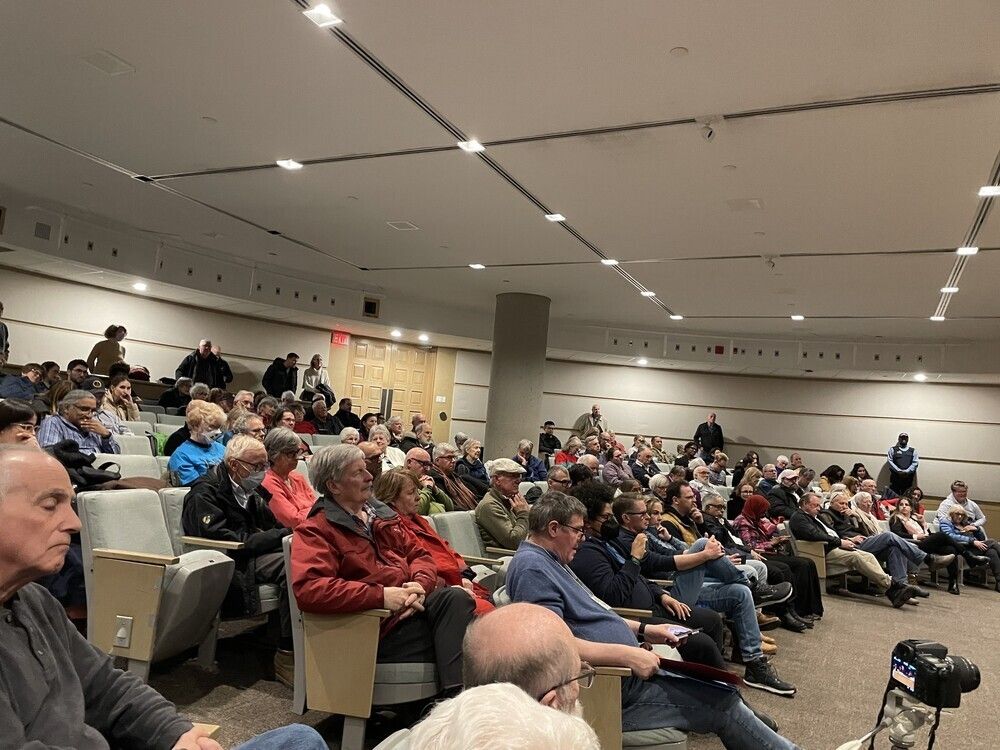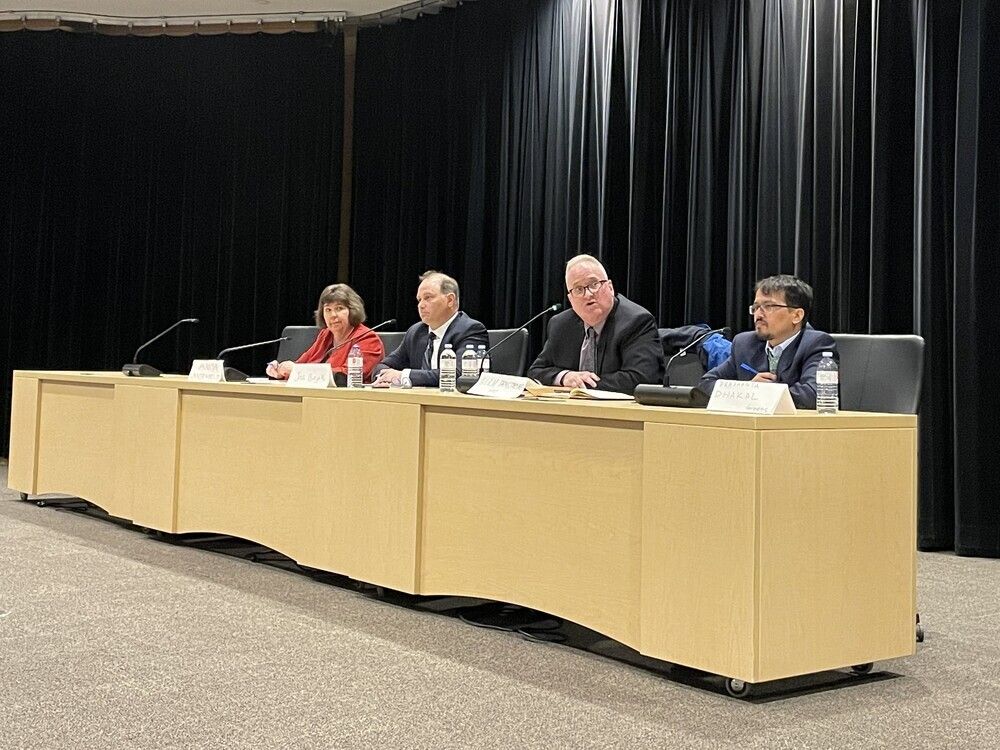Four of the six candidates running for office in Ottawa West-Nepean in the federal general election participated in a Tuesday evening debate organized by several community associations in the riding.
Hosted by Algonquin College journalism professor (and former Ottawa Citizen reporter) Jon Willing at Ben Franklin Place, it was a lively event, with prepared questions provided by the community associations and written questions submitted that night by members of the audience. Each candidate was allowed just one minute to answer, and audience reaction was discouraged to save time.
Although plenty of topics were discussed and the pace moved briskly, it was more like a question-and-answer session than a debate, and the answers often sounded more like bullet points.
Here were five times the discussion got passionate.
Climate change is real
Several questions addressed climate change, to the consternation of People’s Party of Canada candidate Glen Armstrong, who claimed “uncertainty” around the science of climate change and voiced doubts on the validity of carbon-capture programs. “Carbon dioxide is a natural substance that is absorbed by plants. So why the carbon capture?,” he wondered, only to be schooled by the Green Party’s Prashanta Dhakal. “Carbon dioxide is not a pollutant in small quantities, but it’s bad in large concentrations,” Dhakal explained patiently. “We need a certain amount of carbon dioxide in order to keep the planet warm, but, if there’s too much, it’s like a blanket, it can overheat the climate … It’s absolutely known science. This is nothing new and I don’t know why we’re talking about this now.” He received a round of applause for keeping his cool on the issue.
Dealing with the NCC
In a riding that hugs the Ottawa River shoreline, residents are tired of being in the dark when it comes to decisions made by the National Capital Commission, the Crown corporation that manages the urban shoreline and its parks, multi-use paths and scenic parkways. Voters made it clear they had not forgotten the NCC’s 2018 clear-cutting of a trail at Mud Lake nor the Ottawa River flooding of 2017 and 2019 that required a complete overhaul of the berm and pathway through Britannia. The NCC’s main form of public consultation consists of online sessions regarded as “too broad and inadequate.” Residents of the riverside neighbourhoods want more transparency. “It’s not good enough to send an email,” NDP candidate Josh Bizjak said, while incumbent Liberal Anita Vandenbeld said she was calling for consultation and conservation to be increased in the NCC’s mandate.
Conservative no-show
Where was Conservative candidate Ryan Telford? Debate organizer Morley Brownstein of the Bel Air Community Association told residents his team sent multiple invitations over several weeks to the first-time candidate and didn’t hear a word back. The lack of response or even acknowledgement prompted cries of “shame” from the audience. Brownstein added that he had heard “second- or third-hand” that Telford might show up if the questions were provided in advance. The questions were not provided, but organizers set a place for Telford on the off chance he might drop in. He did not, nor is he expected to participate in any other debates during the campaign. (The sixth absent candidate was a late addition to the race. Sean Mulligan of the Christian Heritage Party
couldn’t make it and sent his regrets.)

Hands off the CBC
Residents of Ottawa West-Nepean had a message for any party wanting to gut Canada’s national broadcaster: Don’t do it. The Liberal, NDP and Green Party candidates were all on the same page as voters, who applauded when Vandenbeld shared a plan for $150 million in extra funding for CBC and when the NDP’s Bizjak declared, “We are not Canada without the CBC.” Dkahal also made a case for the corporation to be strengthened and kept out of foreign hands. The dissenting opinion came from PPC’s Armstrong, who dismissed CBC as “paid-for media” full of “talking points for the Liberals” and said people he knew got their news from private broadcasters like Rebel Media. The passionate commentary was surprisingly “spicy,” moderator Jon Willing noted.
Palestine vs. Israel
The final question of the night was submitted by an attendee and tackled antisemitism, sparking an emotional outburst from pro-Palestinian supporters in the room. “What about Islamophobia? What about anti-Palestinian racism? What about anti-Arab racism?” one woman shouted as another man railed against genocide in Gaza. Both were escorted out of the room by security, leaving the candidates to answer the hot-potato question. Vandenbeld spoke on the need for leaders to try to bring people together.
Dkahal said the indiscriminate killing needed to stop, but added that he was “not qualified” to address the topic further. Bizjak said it was important to curb the rise in both Islamophobia and antisemitism, and Armstrong shared an anecdote of the time he “worked well” with the Muslim community on parents’ rights. Overall, it was a flashpoint showing the need for debate and leadership on the issue.
Our website is your destination for up-to-the-minute news, so make sure to bookmark our homepage and sign up for our newsletters so we can keep you informed.
Related
- Peckford: New government must get local housing projects approved quickly
- Pierre Poilievre one of 91 candidates on record long ballot in Carleton riding



